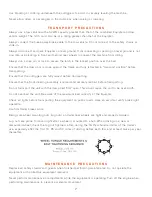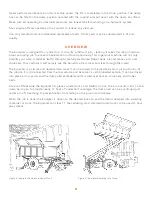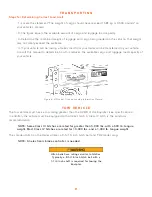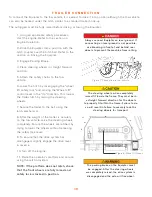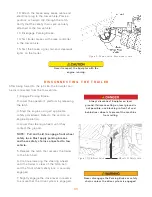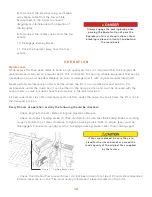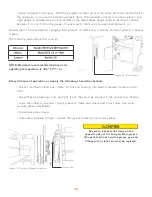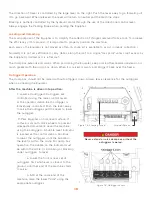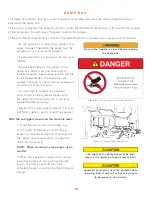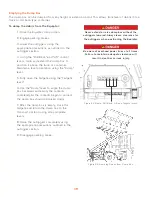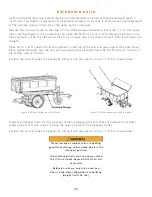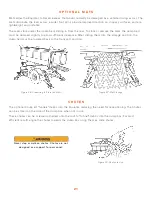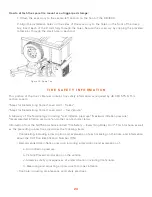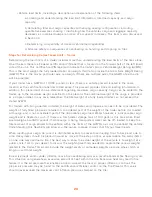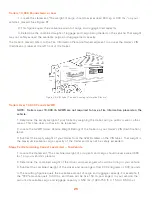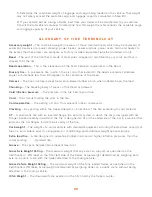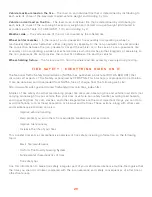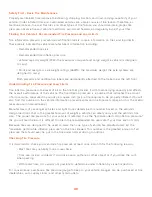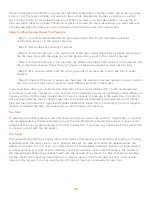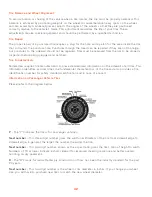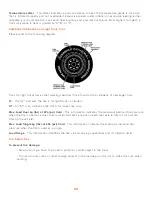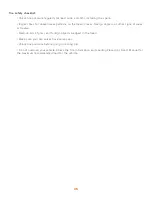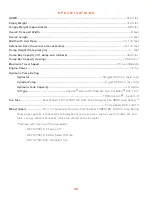
21
Figure 30. Chutes in Use.
Mats allow the Equipter to traverse areas that would normally be damaged by a vehicle driving across. The
mats distribute the load across a wider foot print, provide improved traction on slippery surfaces, and are
lightweight and portable.
The mats store under the dump bed, sliding in from the rear. To store or remove the mats the dump bed
must be dumped slightly to allow sufficient clearance. After sliding them into the storage position, the
dump bed must be lowered back to the transport position.
Figure 26. Prepairing to Store the Mats.
Figure 27. Mat Storage.
O P T I O N A L M A T S
The optional Chute kit “funnels” debris into the Equipter, reducing the need for repositioning. The Chutes
can be stored on the side of the dump box when not in use.
These chutes can be screwed or nailed onto the roof to “funnel” debris into the dump box. For most
efficient results angle the chutes towards the dump box using them as slide chutes.
C H U T E S
Never step or walk on chutes. Chutes are not
designed as a support for personnel.
Summary of Contents for RB4000
Page 2: ......
Page 6: ...iv RIGHT Hydraulic Tank Side REAR Tail Gate LEFT Operator Side FRONT Hitch ...
Page 9: ...3 Figure 2 Decals ...
Page 45: ......
Page 46: ...855 378 4783 www equipter com 49 Eagle Drive Leola PA 17540 ...

